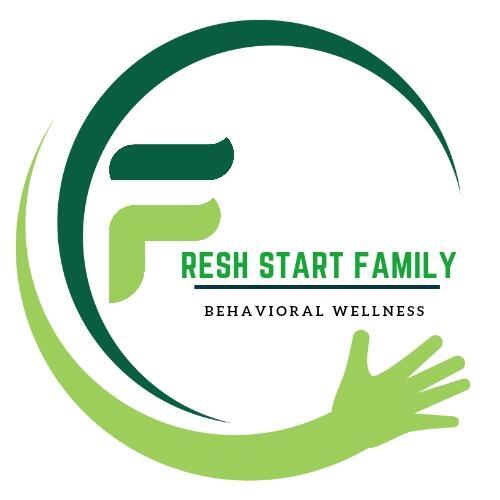Emotional trauma can feel like a storm that hits when you least expect it, often leaving a trail of emotional debris in its wake. The signs of emotional trauma in adults aren’t always obvious, but they can deeply affect how you experience life. These hidden scars might show up as irritability, overwhelming sadness, or difficulty trusting others, even though the trauma itself may have happened years ago.
The problem is that emotional trauma doesn’t just go away on its own. It lingers, often unnoticed, affecting daily life and mental health. Without acknowledgement or healing, these unresolved wounds can lead to chronic anxiety, depression, or difficulties in relationships. Many adults unknowingly struggle with trauma’s aftermath, unsure of where to turn or what’s causing their pain.
In this article, we’ll explore how emotional trauma affects adults, the signs to watch for, and ways to start the healing journey. Understanding trauma is the first step toward reclaiming your peace and well-being.
What is Emotional Trauma?
Emotional trauma refers to the lasting psychological impact caused by deeply distressing or life-altering experiences, such as abuse, loss, or violence. In adults, it can manifest as persistent emotional distress, affecting mental health, relationships, and overall well-being. Left unaddressed, emotional trauma can lead to conditions like anxiety, depression, and PTSD. Recognizing and healing from trauma is essential for restoring emotional balance and improving quality of life.
Types of Emotional Trauma:
Emotional trauma can be categorized into two types:
- One-Time Trauma: A sudden, intense event, like losing a loved one or a natural disaster.
- Ongoing Trauma: Chronic experiences, such as abuse, neglect, or living in a toxic environment, which can create prolonged emotional distress.
Impact on the Brain and Body:
Trauma significantly impacts the brain, often altering neural pathways responsible for processing emotions and memories. This rewiring can lead to heightened stress responses and difficulties in regulating emotions. Physically, trauma can trigger chronic stress, manifesting in fatigue, sleep disturbances, and immune system dysfunction, while behavioral changes may include anxiety, irritability, and withdrawal.
Common Causes of Emotional Trauma in Adults

Understanding the roots of emotional trauma can be eye-opening, as it reveals how deeply personal experiences can impact us. Many adults carry invisible scars from their past, often shaped by significant and distressing events that leave a lasting impact. Knowing these causes can foster empathy and support healing processes.
1. Childhood Trauma
Childhood experiences, such as neglect, abuse, or witnessing traumatic events, can cast long shadows into adulthood. These early experiences often shape an individual’s emotional framework, making navigating adult relationships and self-worth challenging.
2. Divorce or Relationship Breakdowns
The end of a relationship can be akin to experiencing a profound loss. When these relationships have been abusive or toxic, the emotional aftermath can feel insurmountable, leaving a person questioning their own identity and self-worth.
3. Accidents or Natural Disasters
Events like car accidents or natural disasters can disrupt life’s balance in an instant, leaving victims to grapple with feelings of vulnerability and fear as they try to rebuild both physically and emotionally.
4. Workplace Trauma
High-stress environments, bullying, and harassment can make work feel like a battlefield. The emotional toll can be significant, affecting not only professional life but spilling over into personal well-being and self-esteem.
5. Trauma in Social and Political Contexts
Living under societal pressures, facing discrimination, or enduring turbulent political climates can be exhausting. These experiences can seed emotional trauma, leaving individuals feeling marginalized or unsafe in their communities.
Signs of Emotional Trauma in Adults

Emotional trauma in adults often manifests through a variety of signs and symptoms, including anxiety, depression, irritability, and difficulty forming relationships. Recognizing these indicators is crucial for effective healing and support.
1. Emotional Symptoms:
- Persistent Sadness: Chronic feelings of depression or hopelessness that don’t go away.
- Anxiety and Panic Attacks: Constant worry, fear, or a heightened state of alertness.
- Anger or Irritability: Frequent emotional outbursts or a short temper, often disproportionate to the situation.
2. Physical Symptoms:
- Fatigue and Low Energy: Experiencing exhaustion even after rest and constant feeling drained.
- Trouble Sleeping (Insomnia): Difficulty falling asleep, staying asleep, or nightmares that prevent restful sleep.
- Frequent Illness: Chronic illnesses, headaches, stomach problems, or muscle pain that stem from stress.
3. Behavioral Symptoms:
- Withdrawal: Avoiding social situations, staying isolated, or avoiding previously enjoyed activities.
- Self-Destructive Behaviors: Engaging in risky behaviors, overeating, or neglecting personal health.
- Substance Abuse: Turning to alcohol, drugs, or other substances as a way to numb pain.
4. Cognitive Symptoms:
- Memory Problems: Struggling to remember details of past events or feeling emotionally “fuzzy.”
- Difficulty Concentrating: A persistent inability to focus on tasks or responsibilities due to mental overload.
- Flashbacks and Intrusive Thoughts: Re-experiencing the traumatic event through vivid memories or emotional triggers.
5. Social Symptoms:
- Difficulty Forming Relationships: Trouble trusting others or feeling disconnected from those around you.
- Trust Issues: An overwhelming fear of being hurt again, leading to emotional barriers with others.
When to Seek Professional Help: Knowing When It’s Time

When emotional trauma begins to affect daily routines, disrupt relationships, or compromise personal safety, it might be time to seek professional help. Acknowledging these interferences is crucial in understanding that you deserve support and guidance through healing.
Signs You Might Need Professional Intervention:
- Persistent emotional numbness or avoidance of feelings.
- Extreme anxiety, depression, or feelings of being out of control.
- Self-harm or thoughts of suicide.
Overcoming the Stigma of Seeking Help
Seeking therapy or counseling should not come with shame or stigma. It’s an act of strength and self-care, offering a path to recovery and a healthier life. Remember, needing help is a human experience, and reaching out for it can make all the difference.
Healing from Emotional Trauma: Steps Towards Recovery

Untreated emotional trauma can significantly impact your mental and physical well-being. It’s crucial to seek professional help to navigate through these overwhelming feelings. Doing so can not only provide you with the right tools to manage your emotions but also offer a supportive environment where you can openly discuss your experiences without judgment. Remember, you don’t have to go through this alone—professional help can make a difference.
Different Types of Therapy for Trauma Recovery:
These are the best strategies that professionals utilize in helping individuals recover from emotional trauma:
- Cognitive Behavioral Therapy (CBT): Focuses on identifying and changing negative thought patterns. By recognizing these detrimental thoughts, you can learn to reshape them into more positive and realistic ones, greatly aiding the healing process.
- Eye Movement Desensitization and Reprocessing (EMDR): This therapy uses guided eye movements to help process traumatic memories. The goal is to reduce the emotional distress associated with those memories, enabling you to integrate them into your broader life story more comfortably.
- Trauma-Focused Therapy: These approaches are specifically tailored for individuals dealing with trauma. Therapies under this umbrella address the unique ways trauma impacts your life, helping you develop coping strategies and resilience.
Actionable Coping Strategies

Dealing with emotional trauma can feel overwhelming, but you’re not alone. Let’s explore some actionable strategies that can help you navigate the healing process one step at a time.
1. Mindfulness and Meditation
Mindfulness techniques like breathing exercises, guided meditations, and mindfulness-based stress reduction (MBSR) can be transformative. By focusing on the present moment, these practices help calm your mind and reduce anxiety. Imagine taking just a few minutes each day to breathe deeply and center yourself—this simple habit can make a difference in managing symptoms and fostering emotional resilience. Give it a try; you might be surprised at how calming it can be.
2. Journaling for Emotional Release
Writing down your feelings can be a cathartic experience. Journaling helps you process emotions and identify triggers, making understanding and managing your emotional responses easier.
3. Art Therapy
Creative expression through art can help unlock emotions that might be difficult to verbalize. Art therapy provides a non-verbal outlet for expressing and processing deep-seated feelings, whether painting, drawing, or sculpting.
4. Building a Support System
Surrounding yourself with supportive individuals is crucial. Friends, family, or online communities can provide the emotional support and understanding needed to navigate the healing process. You don’t have to do it all on your own.
5. Self-Care Practice
Prioritizing self-care is essential for emotional healing. Simple practices like regular exercise, healthy eating, and a balanced lifestyle can significantly impact your overall well-being, helping you feel more grounded and resilient.
Ways to Support Someone Dealing with Emotional Trauma

Supporting someone through emotional trauma can feel challenging, but offering care and understanding makes all the difference. Your presence and empathy can provide much-needed comfort, even when the path to healing feels overwhelming. Here’s how you can offer meaningful support.
1. Offer a Listening Ear
Sometimes, the most powerful support is simply listening. Show empathy, be present, and let them share their feelings without judgment. Sometimes, knowing someone is there to listen can help them feel less alone.
2. Be Patient
Healing from trauma doesn’t happen overnight. Be patient and let them move through the process at their own pace. Don’t rush them to “get better”—each step in their recovery is important.
3. Respect Their Boundaries
Trauma survivors may not be ready to open up right away. Respect their emotional space, and don’t force conversations. Let them know you’re available when they are ready, but honor their need for time and distance.
4. Encourage Professional Help

If they’re open to it, gently suggest seeking therapy or joining a support group. Professional help can provide the tools and guidance needed for deeper healing, but it’s important to approach the topic with care and without pressure.
Embracing the Journey of Healing from Emotional Trauma
Emotional trauma doesn’t define who you are or your future. While the pain may feel overwhelming, healing is always possible, no matter how long it takes. Every step you take, no matter how small, is a victory. Progress is not always linear, but each moment of resilience is an achievement worth celebrating. It’s important to remember that your past doesn’t have to dictate your future, and you have the power to transform your journey with patience, support, and self-compassion.
Take small steps toward understanding your trauma or helping others on their healing path. Recovery is not an instant process—it’s a journey that unfolds one day at a time. Seeking professional help is often the first courageous step toward reclaiming peace. At Start Behavioral Wellness, we are a team of trusted, empathetic, and caring professionals committed to supporting you through every stage of your healing. Our dedication has led to undeniable client happiness and improved well-being. Let us be your confidant; together, we’ll work to rebuild a stronger, healthier future. Contact us at 910-436-6495, and let’s start this transformative journey together.

